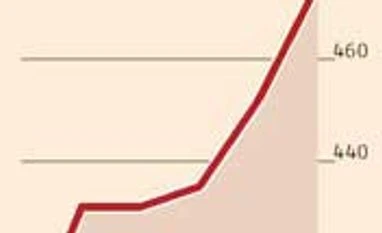The world’s largest coal miner, Kolkata-based Coal India Ltd (CIL), is likely to see its production growing five per cent, a four-year high, in the current financial year. The increased output growth would help revive 20,000 Mw power capacity stranded for want of fuel.
“We are likely to miss the current financial year’s production target of 482 million tonnes (mt) by around seven mt due to procedural delays in forestry approvals,” Chairman and Managing Director S Narsing Rao said here. The company would produce 475 mt this financial year against last year's output of 452 mt.
Rao added that work in six-seven mines with a production capacity of around 20 mt is stuck due to delays in grant of green clearances. “We expected 20 mt to come from Magadh and Amrapali opencast projects in North Karanpura coalfields in Jharkhand this fiscal. But forestry approvals have not been given to us,” he said.
“We are likely to miss the current financial year’s production target of 482 million tonnes (mt) by around seven mt due to procedural delays in forestry approvals,” Chairman and Managing Director S Narsing Rao said here. The company would produce 475 mt this financial year against last year's output of 452 mt.
Rao added that work in six-seven mines with a production capacity of around 20 mt is stuck due to delays in grant of green clearances. “We expected 20 mt to come from Magadh and Amrapali opencast projects in North Karanpura coalfields in Jharkhand this fiscal. But forestry approvals have not been given to us,” he said.
Earlier this week, India’s anti-trust watchdog Competition Commission of India had imposed a penalty of Rs 1,773 crore on the miner on the basis of three petitions filed by state power generation firms of Gujarat and Maharashtra against CIL for alleged abuse of its monopoly position.
CIL alone produces 82 per cent of India’s 558 mt coal production. Gujarat and Maharashtra power utilities had complained CIL forcibly charged them transportation cost for ungraded (lowest quality) coal and discriminated between public and private companies in supply pacts.
“This issue is irrelevant today. Some ungraded coal may have been supplied under the earlier Useful Heat Value grading system when miniscule quantities may have been supplied below the lowest G grade coal at a symbolic rate of Rs 1 per tonne. But, with the switchover to Gross Calorific Value (GCV), this is not possible at all,” said a senior CIL executive.
The lowest quality band of the GCV system has a calorific value of 2,200 Kilocalorie. The power sector is supplied coal at an average GCV of 3,200 Kilocalorie. The company is currently mulling challenging the CCI order in the commission’s Appellate Tribunal.
)